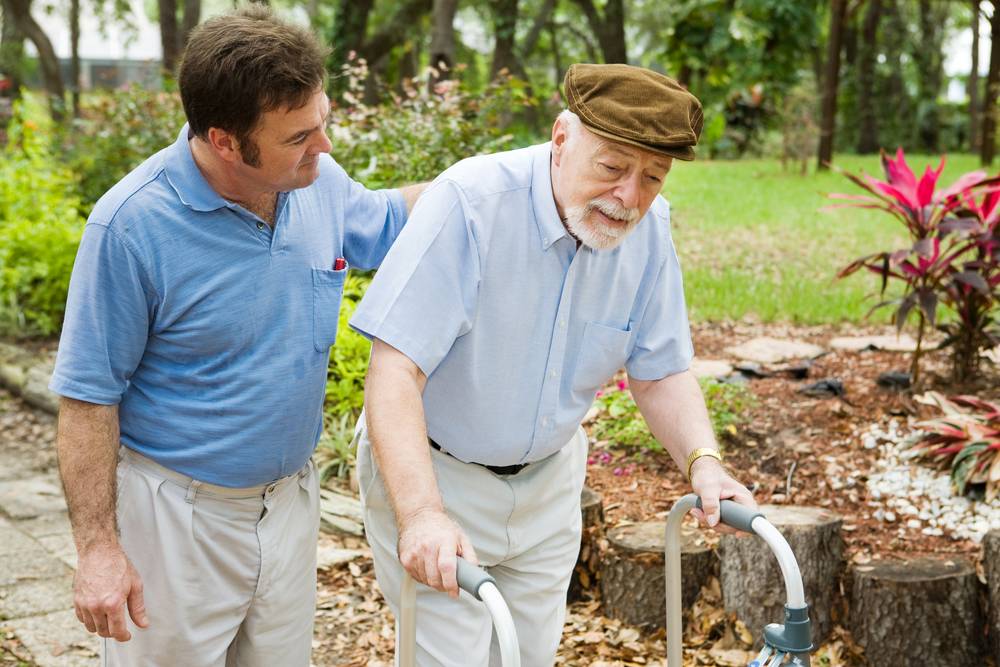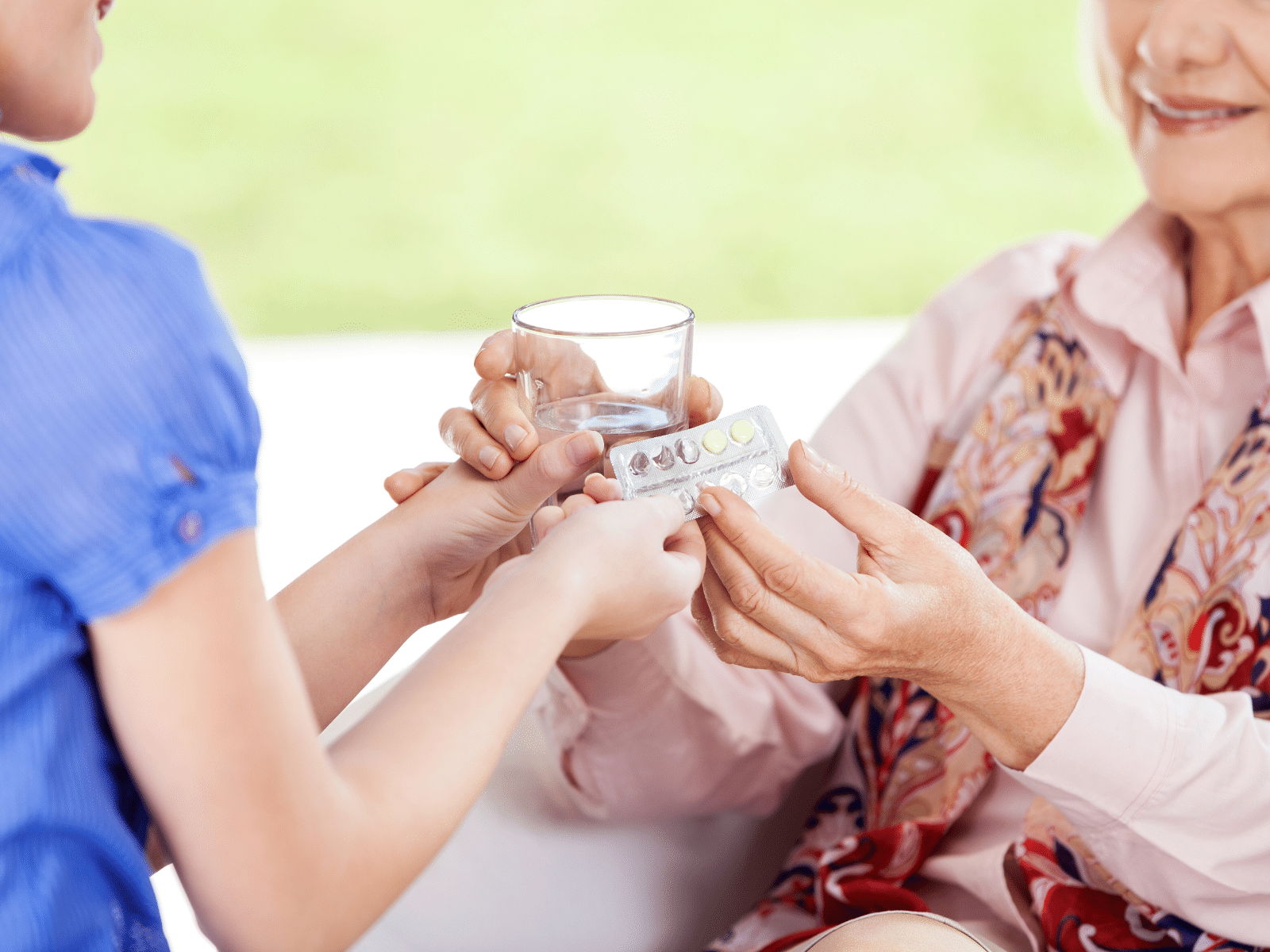As Illinois Nursing Homes Allow for Outdoor Visitors, Family Members Can Look Out for Signs of Distress
COVID-19 is still spreading in Illinois with officials from the Illinois Department of Public Health (IDPH) reporting 715 new coronavirus cases on Wednesday, June 24, while deaths increased by 64. That brings the total cases in Illinois to 138,540, including 6,770 deaths, in 101 Illinois counties. Infections at long-term care facilities comprise nearly 16% of the state’s total cases, but nursing home residents who have died from the virus make up more than 55% of the state’s fatalities. IDPH has started to require testing of residents and staff members at those facilities, and recently announced new measures which allow for nursing home visitors to meet with residents and loved ones under strict precautions.
In a released statement by IDPH on June 18, 2020, Illinois long-term care facilities may begin to allow outdoor visitation for residents when certain conditions are met. Visits to Illinois nursing homes have been restricted since mid-March.
- Visitations must be limited to two visitors at a time per resident.
- The maximum number of residents and visitors in the outdoors space at one time is predicated on the size of the outdoor space.
- There must be a minimum distancing of six feet is achievable in the outdoor space when determining the maximum number of residents and visitors who can simultaneously occupy that outdoor space.
- The facility must clearly communicate and enforce social distancing of six feet between the resident and all visitors.
- The facility must set the maximum number of visitors allowed in a single day.
- Visitors must schedule an appointment with the facility to visit a resident and visitors will be prescreened via phone with the Centers for Disease Control and Prevention (CDC) symptom checklist not more than 24 hours in advance.
- The facility must also screen visitors on arrival with the CDC symptom checklist and a temperature check.
- Residents with active COVID-19 infection, either laboratory confirmed or symptomatic, are not allowed to participate in outdoor visits.
- Residents receiving visitors should also be screened with the CDC symptom checklist prior to visitor’s arrival.
- Visitors displaying symptoms should not visit the facility.
- Visits must be limited to outdoor areas only, including under a canopy or tent without walls. Outdoor spaces must have separate ingress and egress which does not require the visitor to enter the LTCF building.
- Visitors must not enter the facility at any time during their visit.
- For the duration of each visit, the resident and visitor must wear a face covering. The facility may set the time duration of each visit.
- The facility should have staff supervision during each visit to ensure the use of face coverings and social distancing.
- The facility may determine whether supervision is continuous or intermittent.
Some facilities are not eligible for outdoor visits at this time due to outbreaks. It is also up to each facility when or if they will implement outdoor visitations. Many more still need to finalize plans on where to locate outdoor visitors and how staff will manage the appointments and screenings.
A Guide for Visiting with Your Loved One During COVID-19
When lucky enough to schedule an in-person visit with a loved one outside, take the first step in leading a conversation that may help recognize care deficiencies or warn of neglect using this line of sample questioning. This is an unsettling time for most, but asking these questions can reveal much when answered by a vulnerable resident. Listen to their response and act immediately if you suspect anything unusual that may lead to signs of elder abuse or neglect.
- “What activities did you do this week?”
- “Have you had a favorite meal lately?”
- “Are you able to congregate with any friends?”
- “Do you need any items for your bathroom? Have you been given a mask?”
- “When is the last time you have had your clothing or bedding changed?”
- “Have you been feeling any pains or discomfort?”
- “Do you know of anyone who has been sick in your home?
- “How are you feeling?”
- “How are you?”
- “Do you still like it here?”
- “Are you hungry or thirsty?”
- “How is your medication making you feel?”
- “Are you seeing staff wearing extra gear like masks and gowns?”
- “Do you feel safe?”
- “Is there anything you want to talk about?”
The warning signs of nursing home abuse and neglect should never be ignored. Report any alarming findings immediately and create a line of questioning for administrators using the responses you received from your loved one. Nursing home owners and local ombudsmen and possibly legal authorities need to act promptly so residents will no longer be at risk of neglect, abuse, or from coming in contact with COVID-19.
Likewise, if you have concerns about a facility’s infection control practices:
- Make it a point to talk to the Director of Nursing.
- Share your feedback with an Illinois nursing home negligence attorney at Levin & Perconti and a local long-term ombudsman.
- Call the IDPH hotline at 1-800-889-3931 to report issues related to COVID-19 infections at long-term care facilities.
- Find out more information by visiting the IDPH website.
For decades, nursing home owners and operators have cut corners and allowed their facilities to perform under minimal oversight. Legal liability serves a definite purpose and is a functional safeguard for nursing home residents who have the right to be served by an operation that complies with laws and regulations. Our attorneys are currently investigating over 100 complaints involving assisted living, long-term care, and skilled nursing facilities that have failed to uphold adequate safeguards and responsibility related to the COVID-19 outbreak in the greater Chicago area and surrounding communities in Illinois. We can help you too.
Report Nursing Home Abuse & Neglect Concerns
If you fear for a loved one due to COVID-10 disruptions, contact the skilled legal team at Levin & Perconti to discuss your concerns. Call us today at 312-332-2872 for a free consultation with one of our Chicago nursing home negligence attorneys.



